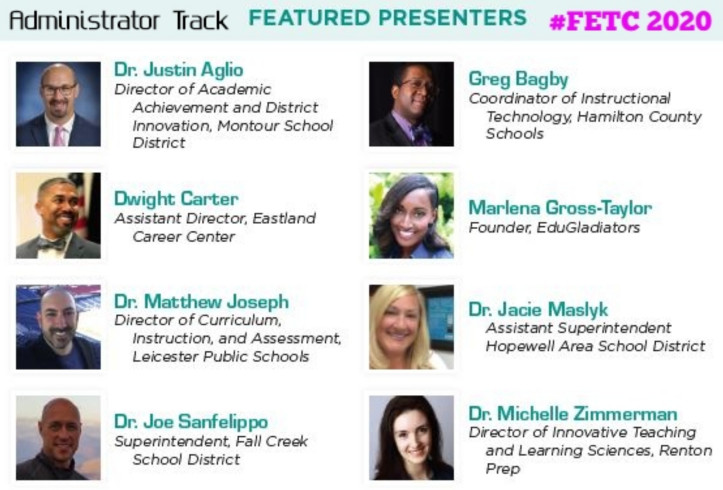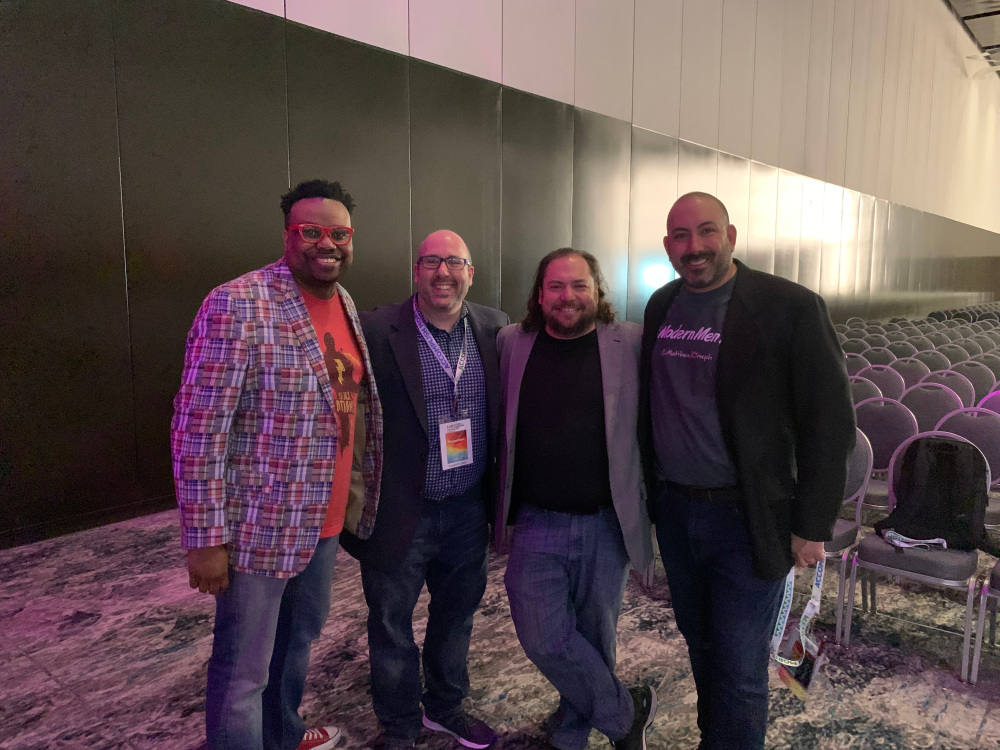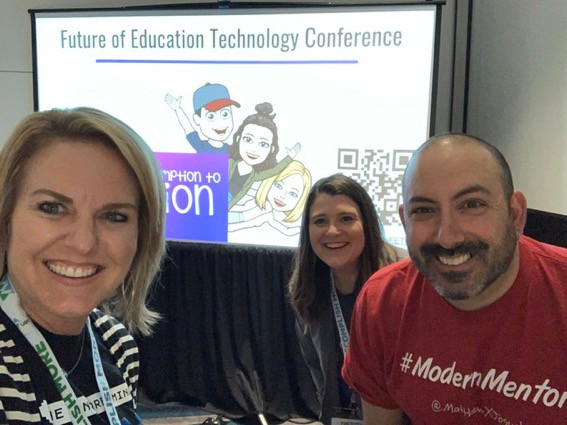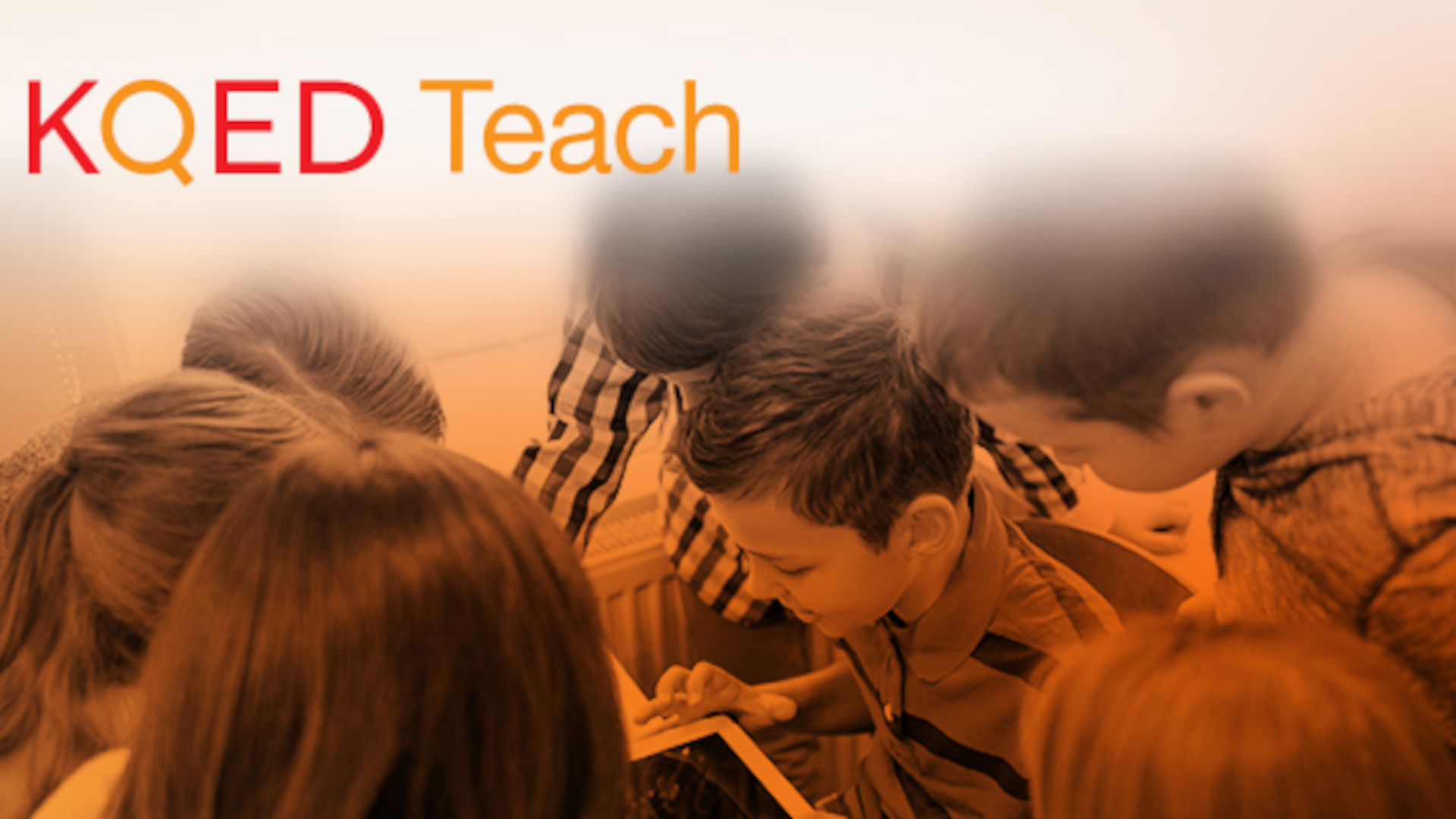FETC Reflection
Tools and ideas to transform education. Sign up below.
You are now subscribed
Your newsletter sign-up was successful
As I got out of my Lyft at the Miami airport Friday, I realize I am saying goodbye to some great new connections I made. This year’s FETC made a considerable impact on me. My next challenge is how to take all these connections and learning and enhance education in my district as well as grow as a leader. I sat at the airport a little numb. Maybe from all the walking, possibly from carrying around my books for the meet the author table (I need a cart on wheels), perhaps a little sad about just meeting some new connections and now leaving, or just could be too many “complementary” refreshments. My guess is a combination of all. I got the Miami airport and made a video urging everyone to reflect.
However, I began to reflect on the flight home and thought to myself, “what does that mean?” We often give advice and maybe do not know how it will look in real-time. Just like me urging others to “Reflect.” So, I began to reflect on reflection (say that five times fast). I started by remembering a quote from Margaret J. Wheatley “Without reflection, we go blindly on our way, creating more unintended consequences, and failing to achieve anything useful.” My first thought is, “Oh, I want to achieve so much after this event, I better get to reflecting so I can get to the action.”
My next thought is, “How fortunate am I to have had this experience. And how honored to be mentioned in the same lens as educators I look up to on the administrative track.”

My next thought was, “reflection is one skill I did not use early enough in my tenure as a principal.” Now reflection is a skill I use regularly and find it a great benefit. Reflection takes many forms, and I think it is an integral part of education and our growth as leaders. Great leaders/teachers reflect on their practice and tweak their plans, units, interactions, and attitudes. With a profession as challenging as teaching, self-reflection offers leaders and teachers an opportunity to think about what works and what doesn’t in their schools/classrooms. This reflection (well blog to reflect) will be done in one take and probably spelling errors or run-on sentences. For me, reflection is about free flowing thought and not going back to wordsmith or knit pick. I typically don’t share my reflection but wanted to be vulnerable and share and share some reflection strategies.
Self-reflection is about asking yourself thought-provoking questions so that you can develop a deeper level of understanding yourself. New thoughts lead to new emotions and, consequently, to further actions and personal growth. Too often in education, we are so busy that you aren’t even aware of how you’re feeling or take time to take a breath. As we leave Miami or in whatever capacity you are in, take time to reflect on what next steps. I recommend these strategies to support your reflection.
Look in the mirror: I think the first step is to consider looking in the mirror and being honest with yourself. Before you can look deep, you should examine your beliefs and successes or areas of improvement with new ideas from FETC or ideas you launched this year.
If you do what you’ve always done, you’ll get what you’ve always gotten: Jessie Potter used this expression in 1981, and I have heard it and used it many times. It is unavoidable, but we all get comfortable with specific strategies and methods. As educational settings evolve and change, we should be willing to update and modify our approach to educating students. As hard as this may be, we must reflect on our approaches and see if it is best practice for the student’s needs.
Tools and ideas to transform education. Sign up below.
Write to reflect: I was not someone who liked writing but recently have found this reflective practice provides vital insights and allows for free-flowing thinking that you can look back on overtime.
Use a critical friend: I know I can be biased toward my own strengths and weaknesses, and because of this, it is extremely important I use a critical friend during self-reflection. The best thing about using a trusted colleague is they will give you honest advice and feedback and notice about you that provide insight into who you really are as an educator.
We often ask students to “Think-Pair-Share” but is it just “Pair-Share” how much thinking time do we give. Hence this blog coming out five days after landing in Boston. I wanted time to think before I shared it.
My biggest take away from #FETC is we are #BETTERTOGETHER. There is NO magic potion to change education, not a quick fix or program. It is impactful educators. I met so many and learned from their stories, and I hope they were able to take from mine.

Think about some of the recent movie blockbusters like The Avengers, Justice League, and X-Men. Yes, these are fictional characters, but what do they have in common? They are all stories of individuals combining their talents to achieve a common goal. Collaboration produces victory in the world of blockbuster movies and can help you do the same in education.
Unlike professionals who work in the private sector, educators spend most of the day with children in classrooms or with other adults as school/district leaders. How do we prioritize finding ways for educators to work together when it’s hard for them to find even a few minutes to use the bathroom. My biggest take away from #FETC is continuing to stay connected and learn from others. One of my best sessions was turning the floor over to Jeni Long (@jlo731) and Sallee Clark (@SalleeClark), two EdTech Coaches, and letting them shine. I learned a ton, and our professional connected deepened. Why not…I shouldn’t do that because my name was on the program, or I am a Doctor and Feature Speaker. Nope, it is about learning, and our session was better because of our collaboration.

I had other reflections takeaways such as:
- Taking risks in teaching and learning and letting your students’ creativity and discovery learning take center stage.
- Upgrading Your PBL Practice: New Support for Project-Based Teaching
- Challenge yourself to be the best you can be.
- Tell your district/school’s story: Branding your learning culture is everyone’s job.
- Be flexible with learning spaces: Students want more than the “sit and get”—they want to be actively involved in their learning.
- Create ongoing projects: The key to projects is to provide plenty of real-world choices that enable students to demonstrate what they are learning.
So as we all head back to our roles and try to prioritize all the learning. Well, unless you are cool enough to head to BETT. FYI, I want to go next year if anyone can hook me up.
Anyway… as we look to implement all our learning, start with reflection. It’s important to take time to reflect before jumping into new ideas or strategies. Three days full of speakers and breakout learning at FETC gave everyone a lot to soak in. Them draft a plan. As tempting as it might be to put things into practice right away, mapping out a plan is often the most effective strategy. Take the learning and make it your own and see how it fits with your district/class. The implementation will not be believable and sustainable if you repeat a speaker’s message, as valuable as it may have been, without making the idea your own.
I am so fortunate to have met or reconnected with so many impactful educators. Either in my session or at events – I am driven to take what I learned, continue to evolve, and put ideas into practice. And of course will remember the fun too…ya Miami is a fun place! See you in Orlando for FETC 21.
cross posted at https://techinnovation.live
Dr. Matthew X. Joseph is currently the Director of Curriculum, Instruction, and Assessment in Leicester Public Schools. He has been a school and district leader in many capacities in public education over his 25 years in the field. Experiences such as the Director of Digital Learning and Innovation, elementary school principal, classroom teacher, and district professional development specialist. His work and experience focus on supporting teaching and learning. Follow Dr. Joseph on twitter at @MatthewXJoseph or read his blog techinnovation.live
Dr. Matthew X. Joseph (@ MatthewXJoseph) is Executive Director of Learning in Providence Public Schools, Rhode Island.
